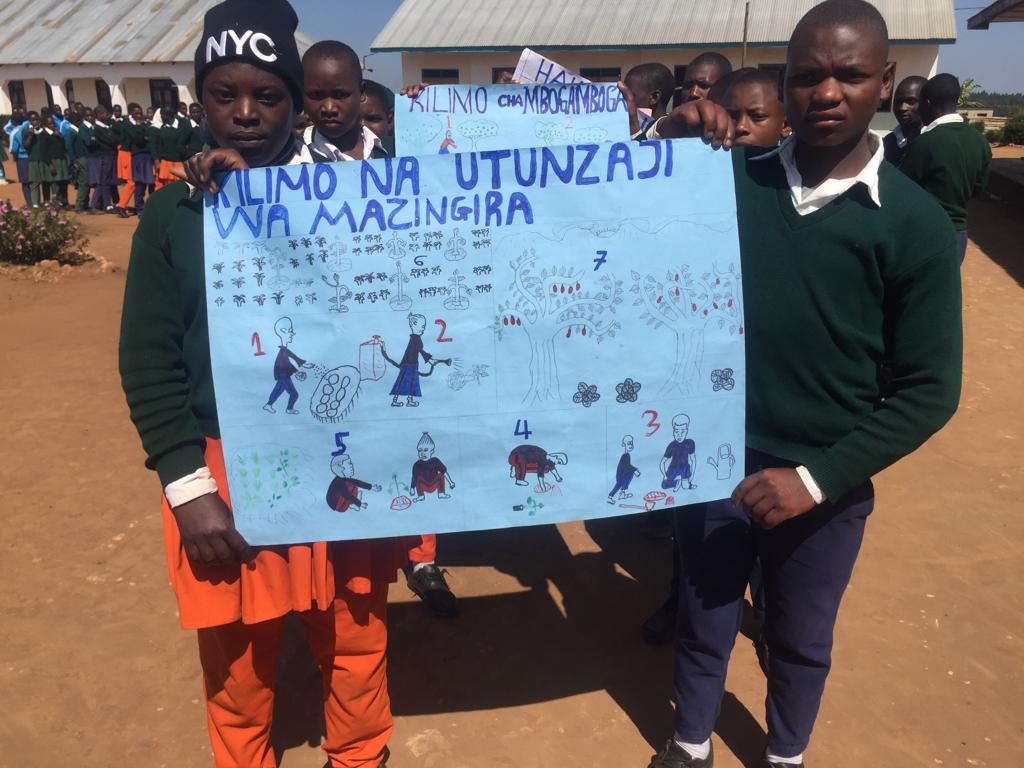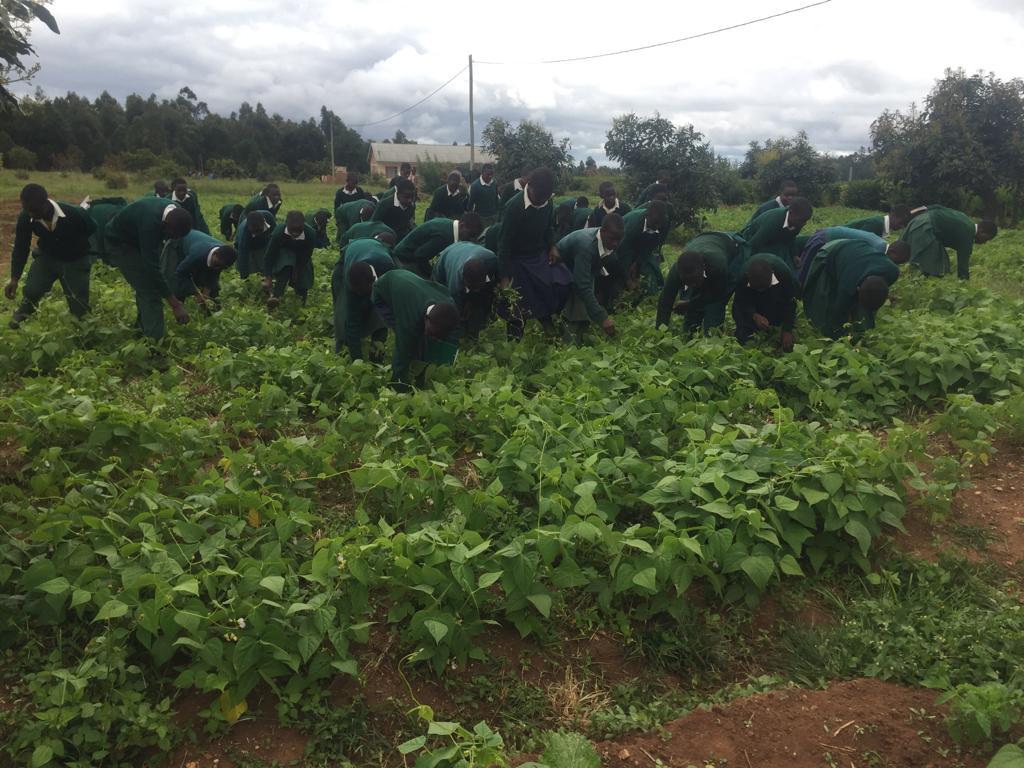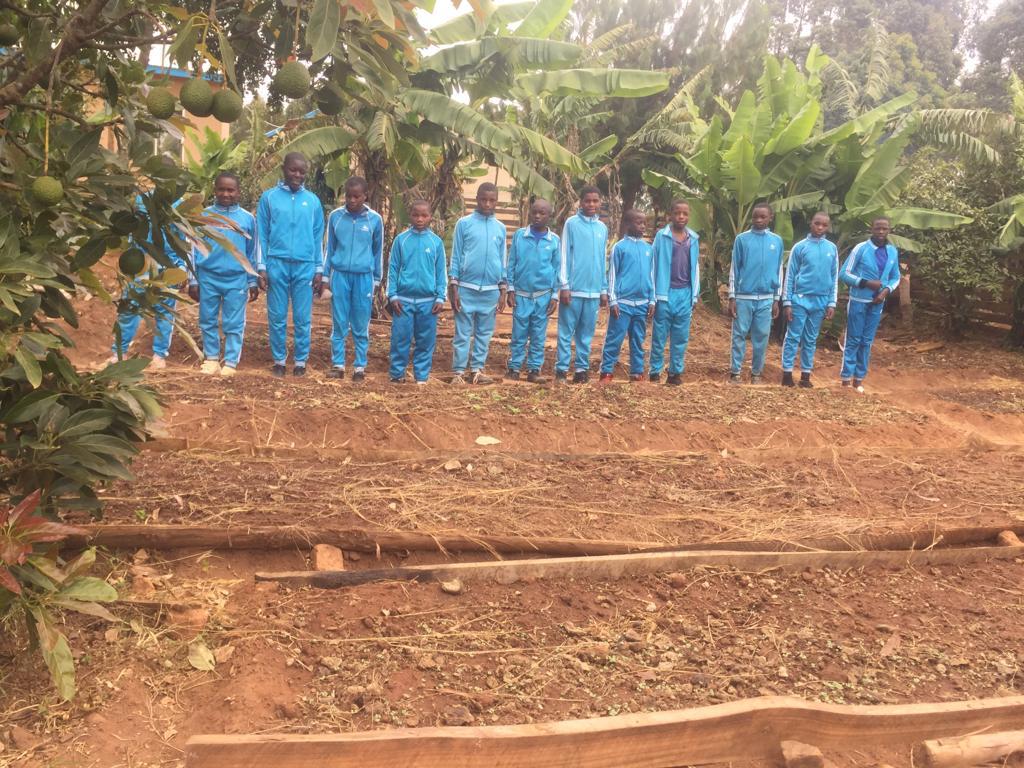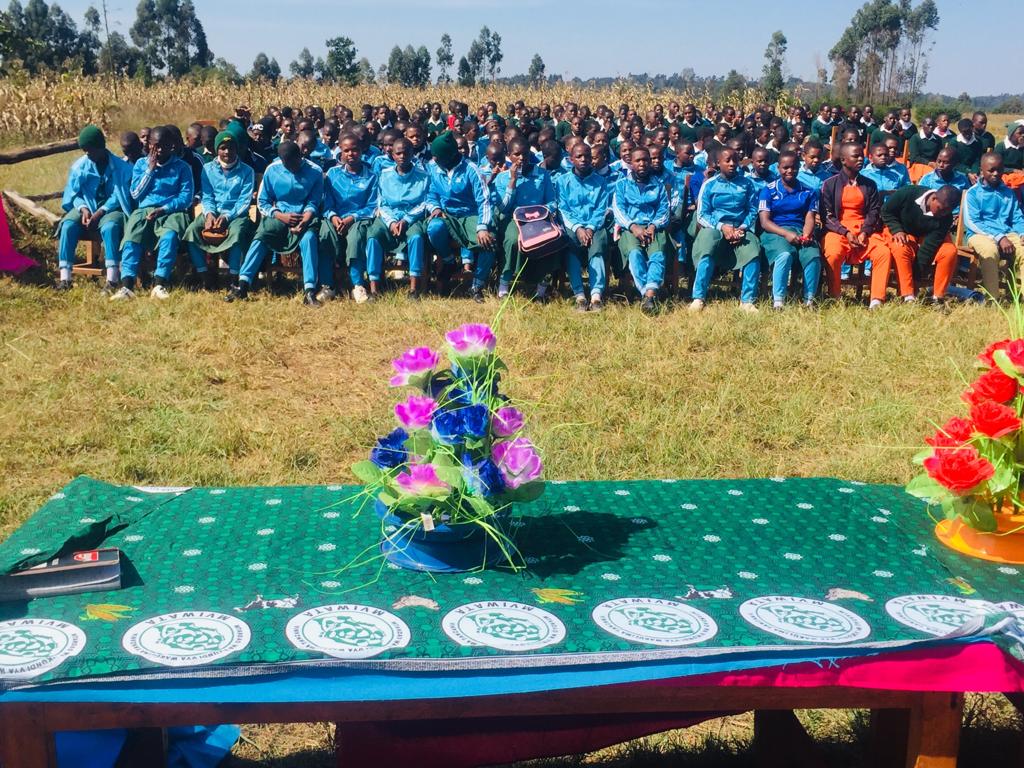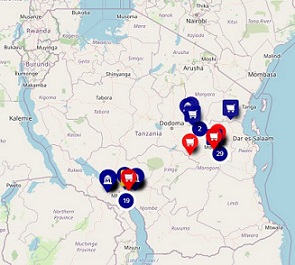At a time MVIWATA decided to dive into this approach, it knew that as an idea, having students around what are called clubs, formed for different purposes wasn’t a new thing; but one thing was for sure, that the existing model (on school clubs) featured largely on the global identified global (with students being recipient) agenda while little was being done on Agriculture.
The conception around forming and organizing students (in primary and secondary schools) through school clubs came, first, from a need of involving more youth into understanding agriculture and the associated struggles (from the peasantry class view) and second from the need of equipping youth with theoretical and practical knowledge on agroecological food production and environmental conservation.
Albeit the fact that these efforts were undertaken and yielded results in some areas previously, 2021 remains as a remarkable year that the process attained much attention in our networks. In Masasi-Mtwara, Shinyanga, Mara and Morogoro farmers embarked in a journey of visiting schools, establish agroecological learning plots and train students on practical agroecological skills, students in turn learnt making composts, producing food in small-scale for school meal programs, initiative that when some were asked, answered “we took the knowledge back home”.
From that moment it was clear that the approach that MVIWATA should use has to be shaped by school members and constantly directed towards understanding local situation, specific needs and designed to ensure maximum participation of students, equip and allow students to innovate and create along the process.
In 2021, when designing the new 2022-2026; MVIWATA members identified Gender Justice as one amongst the main strategic areas of MVIWATA, with Designing and Implementing a Youth programme as a priority activity for both youth in school and youth out of schools.
Up to the end of 2023, about 30 school clubs with more than 2000 students were established in Mara, Shinyanga, Njombe, Rukwa, Mtwara, Morogoro and Ruvuma regions from which students have been exchanging and debating on agroecological practices, preparing radio sessions on agroecology, establishing tree nurseries, producing food contributing to school feeding programs and integrating agroforestry as part of climate action.
Our school of attention in this story is Ninga Secondary school located in Njombe District of Njombe District from which the commemoration of the International Day of an African Child was organized by MVIWATA in 2023. The club engages in activities such as establishment of tree nurseries and production of seedlings, agroecological vegetable production, tree planting (both fruits and pole tree planting). The production activities of the club have managed to provide vegetables for the school meal plan on daily basis. In 2023 alone, the school club managed to produce more than 1000 tree seedlings.
Commemoration of the International Day of an African Child was organized by MVIWATA in 2023 at Ninga Secondary where about 250 students participated in the prepared activities including keynote presentations from a guest speaker, Mr. Muhemsi Mwakihwelo, General Secretary of the Tanzania Socialist Forum (TASOFO), students and MVIWATA members; dialogue which was concluded by deliberations as well as on-farm demonstrations of the production activities as an exchange with other invited students and farmers.






